Premium Only Content
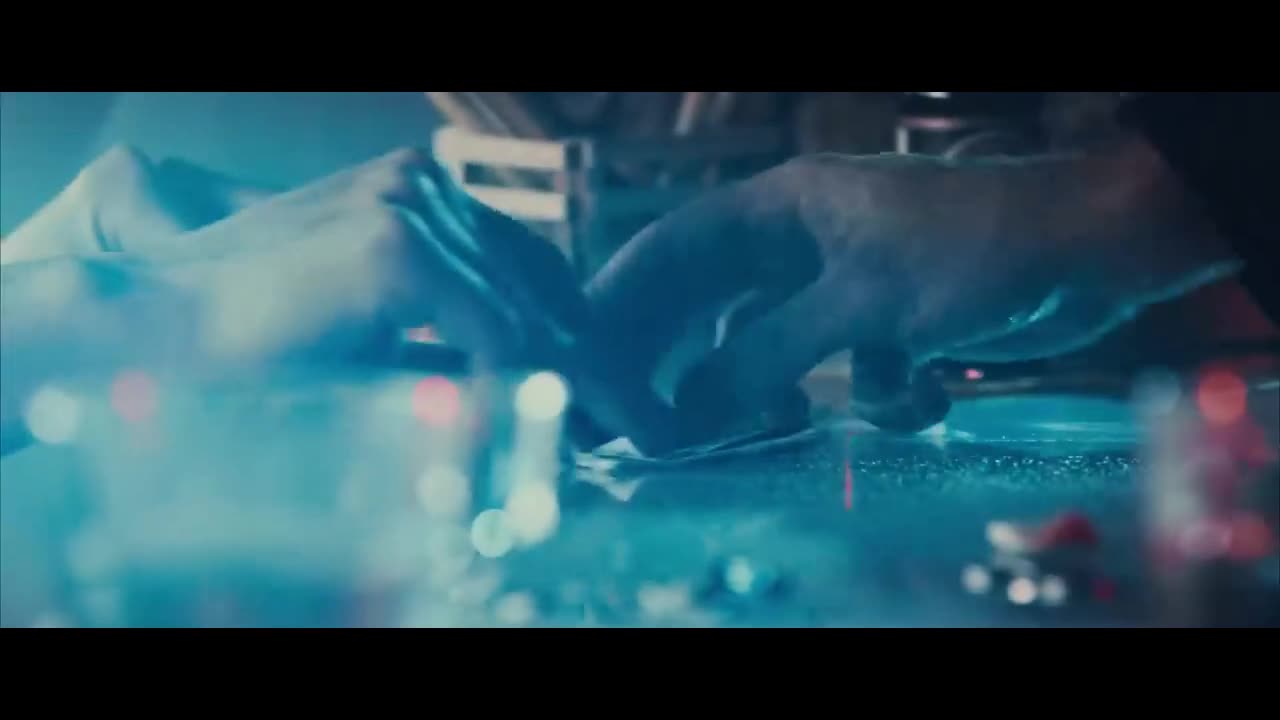
Lookin Out My Back Door Run Through The Jungle The Midnight Special Creedence Clearwater Revival
Lookin Out My Back Door Album: Cosmo's Factory (1970)
Run Through The Jungle Album: Cosmo's Factory (1970)
The Midnight Special Album: Willy and the Poor Boys (1969)
by Creedence Clearwater Revival
Lookin Out My Back Door was partly written for John Fogerty's son Josh, who at the time was three years old. Fogerty said: "I knew he would love it if he heard me on the radio singing - doot doot doo, lookin' out my back door." In the song lyrics there is a reference to a parade passing by which John says was inspired by a Dr. Seuss book that he read as a kid titled To Think (That) I Saw It On Mulberry Street.
Much like The Beatles "Lucy In The Sky With Diamonds," many people thought Lookin Out My Back Door was about drugs when it was really an innocent song inspired by a child. According to the drug theory, the "Flying Spoon" was a cocaine spoon, and the crazy animal images were an acid trip. This was even less plausible than the Beatles misinterpretation, since Creedence Clearwater Revival was never into psychedelic drugs.
This is played in the film The Big Lebowski.
The album cover shows Creedence Clearwater Revival's rehearsal space, which is not their original digs: they started rehearsing in a shed in the backyard of their drummer Doug Clifford's house. Clifford once said it was "better than working in a factory," so their rehearsal rooms became known as "The Factory." Clifford's nickname was Cosmo, so this space was known as "Cosmo's Factory."
John Fogerty played a bit of dobro on Lookin Out My Back Door. He's seen holding the instrument on the cover of the 1969 album Green River, but "Lookin' Out My Back Door" is the only time he played it on a Creedence song. In 1993, he bought a dobro at a vintage guitar show and set out to master the instrument, playing it for hours on end and using it on his 1997 solo album Blue Moon Swamp. He got some help along the way from Jerry Douglas, a preeminent dobro player who was part of Alison Krauss' band Union Station.
This is often believed to be about the Vietnam War, as it referred to a "jungle" and was released in 1970. The fact that previous CCR songs such as "Who'll Stop the Rain?" and "Fortunate Son" were protests of the Vietnam War added to this theory. In response, John Fogerty said: "I think a lot of people thought that because of the times, but I was talking about America and the proliferation of guns, registered and otherwise. I'm a hunter and I'm not antigun, but I just thought that people were so gun-happy - and there were so many guns uncontrolled that it really was dangerous, and it's even worse now. It's interesting that it has taken 20-odd years to get a movement on that position."
This position is best demonstrated in this lyric:
200 million guns are loaded
Satan cries, "Take aim!"
"Run Through The Jungle" opens with jungle sound effects created by, according to Stu Cook, "lots of backwards recorded guitar and piano."
Speaking about the musical influence on this song, John Fogerty said: "There were so many more people I'd never heard of - like Charlie Patton (an early Delta bluesman). I'm ashamed to admit that, but he wasn't commercially accessible, I guess. I read about him, and about a month or two later, I realized there were recordings of his music. To me, that was like if Moses had left behind a DAT with the Dead Sea Scrolls or something! 'You mean you can hear him?! Oh my God!' And then when I did hear Patton, he sounded like Howlin' Wolf, who was a big influence on me. When I did 'Run Through the Jungle,' I was being Howlin' Wolf, and Howlin' Wolf knew Charlie Patton!"
The line, "Devil's on the loose" ("They told me, 'Don't go walking slow 'cause Devil's on the loose'") was taken from music journalist Phil Elwood, who misinterpreted the line "doubles on kazoo" from the song "Down on the Corner" ("Willy goes into a dance and doubles on kazoo"). Fogerty saw this misquoted lyric in the newspaper and loved it, so he thanked Phil and used it for "Run through the Jungle."
Former CCR executive Saul Zaentz claimed that the song "The Old Man Down The Road," which Fogerty released as a solo artist, was too similar to this song, and even took him to court. It was perhaps the first time an artist was sued for plagiarizing himself. Fogerty won that case, but Zaentz also sued him for his song "Zanz Kant Danz," professing that it was an attack on him. Zaentz won that case and Fogerty not only had to pay a fine, but also had to change the song's name to "Vanz Kant Danz."
Run Through The Jungle was released as the B-side to the single for "Up Around the Bend," which was issued in April and quickly went gold. Most artists didn't use songs that could be standalone singles as B-sides, but if you bought a CCR single, you often got two hit songs - another example is "Travelin' Band" and "Who'll Stop The Rain?," which were paired on the same single.
John Fogerty played the harmonica part on Run Through The Jungle. Like the vocals on "Down on the Corner," he recorded it after recording the actual song and dubbed it in, because it went from harmonica to vocals so quickly and he couldn't remove the harmonica from his mouth fast enough. John also played harmonica on his solo effort The Wall (not to be confused with the Pink Floyd album).
Fogerty told Guitar World in 1997 that when he sang "Run Through the Jungle," he was "being Howlin' Wolf," an artist he cites as a major influence on him.
The Gun Club covered this for their album Miami, although with different lyrics because vocalist and band leader Jerry Pierce couldn't understand what John Fogerty was singing. He took some lyrics from black slavery songs, a Willie Brown song and personal experience (a heroin overdose is mentioned). They first performed it at a friend's birthday party before they were persuaded to include it on the album.
Besides Gun Club, this has been covered by Bruce Springsteen, Georgia Satellites, 8 Eyed Spy, Los Lobos and Killdozer.
Tom Fogerty called this song, "My all-time favorite Creedence tune." He added, "It's like a little movie in itself with all the sound effects. It never changes key, but it holds your interest the whole time. It's like a musician's dream. It never changes key, yet you get the illusion it does." >>
This song has appeared in the following movies:
Air America (1990)
My Girl (1991)
Rudy (1993)
The Big Lebowski (1998)
Radiofreccia (1998)
Radio Arrow (1998)
Tropic Thunder (2008)
Drift (2013)
And these TV series:
Entourage (The Scene - 2004)
Supernatural ("Sin City" - 2007, "Out of the Darkness, Into the Fire" - 2015)
Hawaii Five-0 ("Kahu" - 2012)
According to folk music historian Alan Lomax as documented in the book Folk Song USA, the Midnight Special was a real train: the Southern Pacific Golden Gate Limited. A traditional folk song, Leadbelly popularized it upon his release from Sugar Land prison in Texas, where he could hear the Midnight Special come through. In the song, the light of the train gives the inmates hope: if it shines on them they take it as a sign they will soon go free.
Many blues artists have recorded this song, but it was also covered by musicians of many styles like ABBA, Van Morrison, and Johnny Rivers, who charted with the song at #20 in 1965. One of the most popular covers is by Creedence Clearwater Revival, but the biggest chart hit was by Paul Evans in 1960, who took it to #16 when he was touring as a teen idol promoting "Seven Little Girls (Sitting In The Back Seat)."
Evans told said: "Real, real folk singers always did that song. I cut it 'cause I loved it, that's it. [John Fogerty] told an interviewer why he eventually cut the song. 'I once heard a record made by a Paul Evans, and I liked it a lot. And I did it his way, except we just rocked it up a little more.' You know, these are little joys you get as you travel through life, to have a star of that magnitude say that on that song he heard my record and liked it enough to want to record it himself."
The train that provided the title got its name because it departed Jackson, Mississippi at 12:05 a.m. on Sunday mornings, arriving at Parchman Prison, 130 miles to the north, at dawn. The prison, also known as Parchman Farm (or more formally, Mississippi State Prison), was on thousands of acres of land, where the inmates did hard labor. While they worked, they would sometimes sing about the Midnight Special, which brought visits from friends and family, so for conjugal visits, the first of their kind.
This was used as the theme to a popular TV show in the late 1970s called The Midnight Special. It was hosted by Robert Westin Smith, also known as the famous American DJ Wolfman Jack.
The 1962 recording of "Midnight Special" by the Jamaican-American singer Harry Belafonte is notable for containing the very first official recording of Bob Dylan, who played harmonica. Belafonte told Mojo magazine July 2010 how it came about. He recalled: "It was supposed to be Sonny Terry, but he got grounded by a thunderstorm in Memphis and couldn't make the date. My guitarist Millard Thomas said, "Well, there's this kid I see all the time down the village and he does that whole Sonny thing… he sleeps and dreams it.' So I said, 'We don't have a choice, I guess. Go find him.'
And this skinny kid appeared, and he had a paper sack with him full of harmonicas in different keys. I played the song for him and he pulled one out of the bag, dipped it in water and played it through a single take, and it was great. I loved it. I asked him if he wanted to try another take and he said, 'No.' He just headed for the door, and threw the harmonica into the trash can on his way out.
I remember thinking, Does he have that much disdain for what I'm doing? But I found out later that he bought his harps at the Woolworth drugstore. They were cheap ones, and once he'd gotten them wet and really played through them as hard as he did, they were finished. It wasn't until decades later, when he wrote his book (Chronicles), that I read what he really felt about me, and I tell you, I got very, very choked up. I had admired him all along, and no matter what he did or said, I was just a stone, stone fan."
-
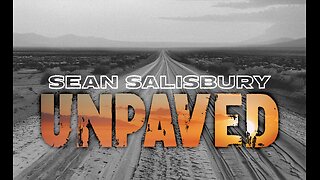 1:07:08
1:07:08
Sean Unpaved
3 hours agoNFL Free Agency Rolls On! MLB Spring Training Heats Up along with 3x World Series Champ Dave Stewart
22.3K3 -
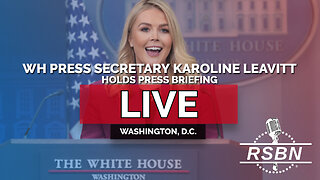 2:10:15
2:10:15
Right Side Broadcasting Network
8 hours agoLIVE REPLAY: White House Press Secretary Karoline Leavitt Holds Press Briefing - 3/11/25
117K33 -
 2:06:00
2:06:00
The Quartering
6 hours agoTrump Goes NUCLEAR On Canada, Blasts Massie, Harry Potter Race Swap, Man Humiliated On TV Show
69.8K37 -
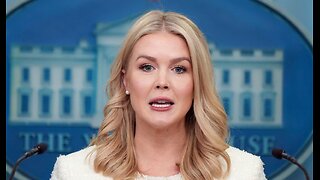 1:03:09
1:03:09
The White House
6 hours agoPress Secretary Karoline Leavitt Briefs Members of the Media, Mar. 11, 2025
74.5K52 -
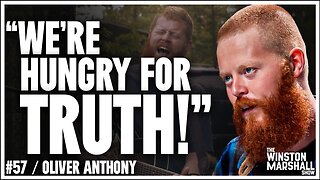 1:07:03
1:07:03
Winston Marshall
5 hours agoEXCLUSIVE : Oliver Anthony On Life After ‘Rich Men’, The Christian Counter Culture and The Elites
47.2K9 -
 1:44:47
1:44:47
Russell Brand
7 hours agoDigital Censorship & Political Warfare: X Attacked, Rand Paul Rebels, Free Speech on Trial – SF551
140K20 -
 LIVE
LIVE
tastylive
6 hours agoLIVE Stocks, Options & Futures Trading with the Pros! (Market Open -> Close & More) March 11th, 2025
108 watching -
 1:35:59
1:35:59
Simply Bitcoin
6 hours ago $3.57 earnedTrumps Bitcoin Embrace TERRIFIES The EU | EP 1200
51.2K8 -
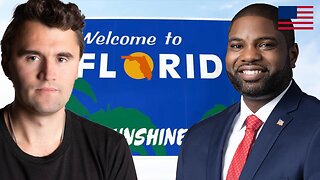 2:00:05
2:00:05
The Charlie Kirk Show
6 hours agoThe Left Regroups + Deporting Hamas Lovers + Love Is Blind? | Rep. Donalds, Dr. Arnn | 3.11.25
125K23 -
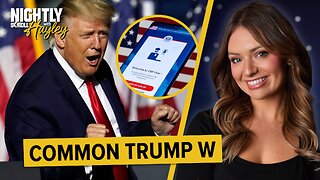 30:41
30:41
BonginoReport
1 day agoTrump Pulls Ultimate Uno Reverse Card On Illegals (Ep.1) - 03/10/2025
149K552